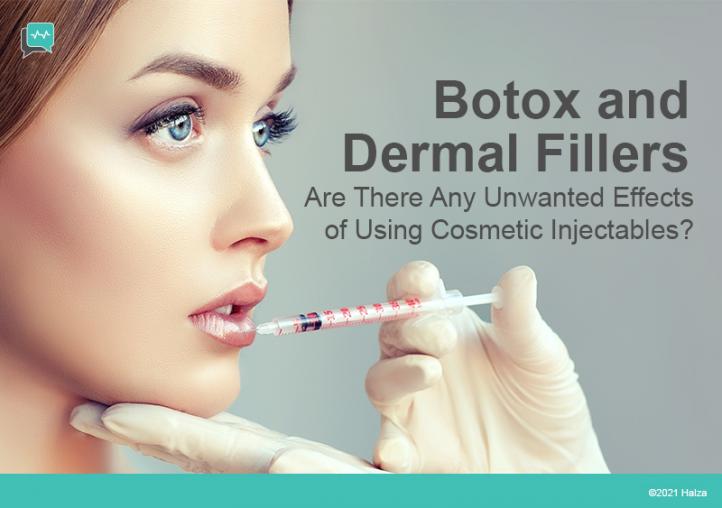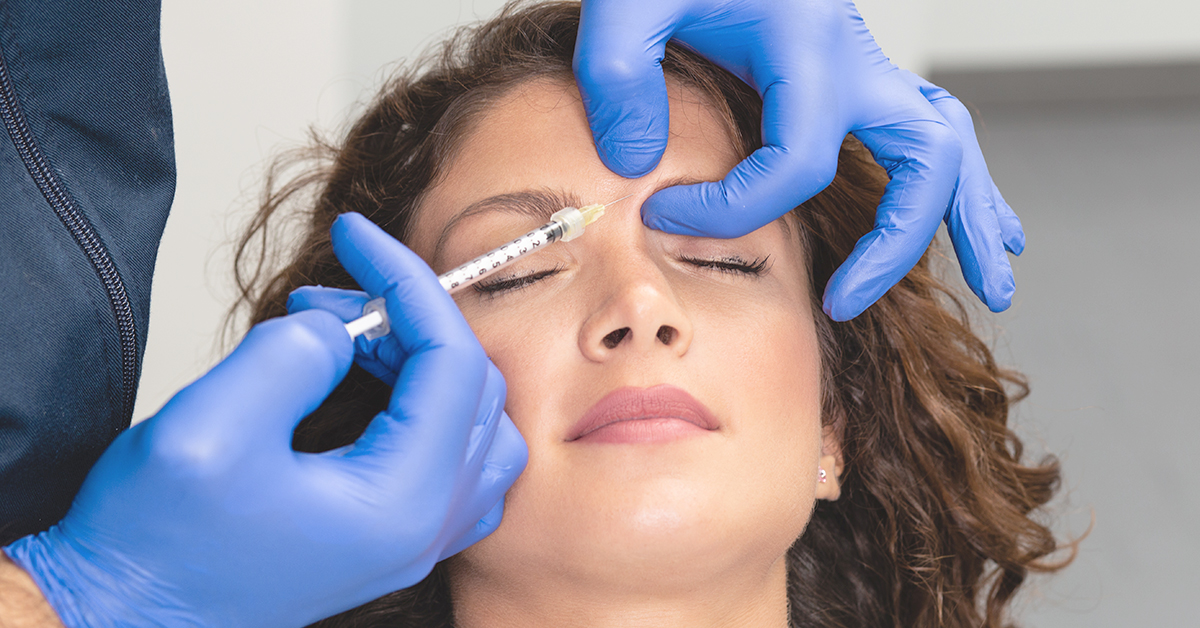All About Botox & Dermal Fillers

Did you know that almost 7.7 million Botox injections were administered in 2019 in the U.S. alone?
We may know them by many different names, but injectable treatments have been taking the cosmetic surgery and procedure industry by storm. Given how they provide people with a relatively cheaper and less permanent alternative to traditional cosmetic surgery methods, while also requiring a shorter recovery period, their popularity shouldn’t come as much of a surprise.
But is this too good to be true? Are there potentially adverse effects of using injectables like Botox and dermal fillers?

Firstly, what exactly are they?
Injectables are basically substances that are inserted into the skin with a needle to support muscles, plump up the skin, or lessen the appearance of wrinkles.
Botulinum toxin type A, which relaxes the facial muscles that cause the lines, and dermal fillers, which plump out the wrinkles, are two main types of injectable substances.
The effects of most cosmetic injectables are temporary, which is why regular treatments are needed to maintain results. Hyaluronic acid fillers, for example, tend to be the most temporary option, typically lasting from 6 to 18 months. To avoid any unwanted effects and ensure optimal results, the cosmetic surgeon or qualified practitioner carrying out the procedure should be well aware of the anatomy and product being used.
To avoid forgetting or even missing a follow-up treatment, you can always schedule important appointment dates and set reminders in health apps like Halza. Learn more here.
What you should know before getting fillers
Injectable treatments like Botox and fillers will always come with risks. To minimize these risks, ensure that you get your cosmetic injections done at a registered clinic, by a board-certified and experienced medical practitioner.
Sometimes, having a pre-existing condition may lead to complications if you choose to get injectables. For example, do not use botulinum toxin type A injections if:
- you are allergic to any of the ingredients listed in the formulation
- you have an infection in the muscles where it would normally be injected
- you have any muscle disorders in other parts of your body, including myasthenia gravis, Eaton Lambert syndrome, or amyotrophic lateral sclerosis.
As for dermal fillers, they may not be suitable if you have:
- certain medical conditions, such as autoimmune diseases including systemic lupus erythematosus, rheumatoid arthritis, and mixed connective tissue disease.
- a history of keloid scarring (thick, raised scars)
- inflamed or infected skin
- severe or life-threatening allergies (including asthma) and food allergies
Additionally, there are age restrictions for injectable treatments.
The US Food & Drug Administration (FDA) does not recommend the use of Botox in those aged 18 and younger. When it comes to dermal fillers, the FDA has approved them for use in adults over the age of 21.
Consulting your practitioner before going ahead with the procedure is a must. Sharing your medical history with them during these consultations helps them better prepare and choose the best course of action for you.
Using health apps like Halza to upload your medical records, log health conditions and allergies, and store other vital information simplifies sharing an overview of your health. Learn more about Halza here.
How can injectables affect you?
This will depend on the kind of injectable treatment chosen.
That is why it is important to be fully informed about the product being used, how the procedure will be carried out, the associated risks, and any results of the past professional work of the practitioner carrying out the treatment.
Side effects
These vary from treatment to treatment.
The side effects of Botox injections typically include:
- local bruising
- bleeding
- swelling
- inflammation
In some cases, there have been reports of headaches, general malaise, nausea, flu-like symptoms, and drooping of the eyelid. However, these side effects are generally temporary and often treatable. It is important to report them to your doctor if you experience them to get appropriate advice.
The side effects of dermal fillers typically include:
- local reactions
- infections
- hypersensitivity to the product
- lumps
- skin discoloration
Studies have found that the side effects associated with most cosmetic procedures, particularly injectables, are minimal and temporary when performed by well–trained and qualified practitioners, like dermatologists and cosmetic surgeons, underscoring the importance of doing your research before getting the procedure done.
Serious or long-term adverse effects
Unfortunately, there is limited information with regards to serious adverse events due to cosmetic Botox.
Drug safety data and case reports so far only imply that Botox may be associated with serious adverse events such as botulism, generalized paralysis, dysphagia, respiratory complications, all of which are serious and life-threatening.
Available research attributes these adverse events to either:
- the mode of action of Botox, which is when the wrong muscle is paralyzed; or
- the chemical structure of the drug, which results in hypersensitive reactions.

Dermal fillers have also been found to cause some potentially serious and delayed complications. According to some studies, the reported adverse effects have included:
- formation of nodules
- infection
- inflammation
- allergic complications
- vascular complications ((problems with the blood vessels)
In general, there is limited information about the serious and long-term impact of cosmetic injectables, and more research needs to be done, especially given their widespread popularity. Furthermore, not much is known about any damaging or irreversible effects on physical appearance and whether there are any effects on mental health.
At the end of the day
Undoubtedly, the injectable treatments available today, whether dermal fillers or Botox, are safer and more dependable than they have ever been. If you’re considering injectables, just be sure to do your research in terms of finding a qualified and well-certified practitioner with good basic knowledge of the anatomy involved and the product being used, as well as experience of the procedure being carried out. That way, you improve your chances of achieving the best results possible, with minimal side effects and no serious or long-term adverse effects.
Sources: ASPS, 2 – Better Health – Karger – FDA, 2 – Sage Journals – BMJ Journals – NCBI, 2 – American Board Cosmetic Surgery
